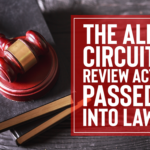If you are considering bringing a whistleblower action – whether as a False Claims Act (FCA) lawsuit, or an action for a whistleblower award for securities fraud, tax fraud, or commodities fraud – it is likely the case that you are concerned about the potential blowback for you in coming forward with illegal acts. Potential whistleblowers are definitely encouraged to learn everything they can about the whistleblowing process so that they are understand what issues they may face, and so concern about having one’s identity made public is certainly valid. After all, many whistleblowers obtained information of illegal acts through their work, and may face workplace and career challenges down the road if their identity becomes known. That said, there are several protections in place for whistleblowers concerned about the revelation of their identity.
It Is Illegal to Retaliate Against Whistleblowers
First off, it should be understood that retaliation by employers against employees for exposing illegal practices is prohibited under state and federal laws. An employer who does retaliate against a whistleblower opens themselves up to employment lawsuits as well as further penalties from regulators.
Thus, even if your identity becomes known, an employer who pursues an adverse employment action against you – such as firing you, demoting you, suspending you, and so on – can get in even more significant legal trouble, and you may be able to obtain a further financial recovery.
FCA Claims Can Be Pursued Anonymously (At Least For a Time)
When a person initially brings an FCA claim, their attorney will file a complaint with the federal government first, and the government will have the option of joining in the FCA lawsuit, which means the government will assist in investigating the claims. This period of investigation can last for a while, as the government would like to be relatively sure it is pursuing a valid claim.
During that time, the name of the whistleblower (also called a “relator”), as well as the contents of the complaint, can be held under seal, which means employers or any other parties will not have access to the whistleblower’s name or necessarily even know a suit is being pursued.
If the government does decide to join in the suit, the defendant may then become aware of both the lawsuit and potentially the name of the relator. That said, the benefit of the government having joined forces with a relator in pursuing what could be a large ultimate payout for the relator often far outweigh the potential negative ramifications of having one’s identity publicly available.
SEC, IRS, AND CFTC Whistleblower Actions
Whistleblower actions brought to address securities violations, tax fraud, and commodity fraud offer even greater protection for whistleblowers in protecting their identity. The various whistleblower offices will maintain the anonymity of whistleblowers throughout the entire process, even after an award is made.
Remember, when you speak with a whistleblower attorney, you are entering into a confidential relationship, and the whistleblower attorney will not share any details about the information you provided, where you obtained it from, or even your identity.
Work with Experienced Whistleblowing Attorneys You Can Trust
Our nation and its taxpayers relies on courageous insiders like you to come forward with information that can stop harmful fraud committed against taxpayers and investors. Our experienced whistleblower attorneys will work with you every step of the way to determine your appropriate course of action, protect you from retaliation, and collect your much-deserved reward. If you have information that you believe may form the basis of a whistleblower lawsuit, contact us today for an evaluation of your allegations.




